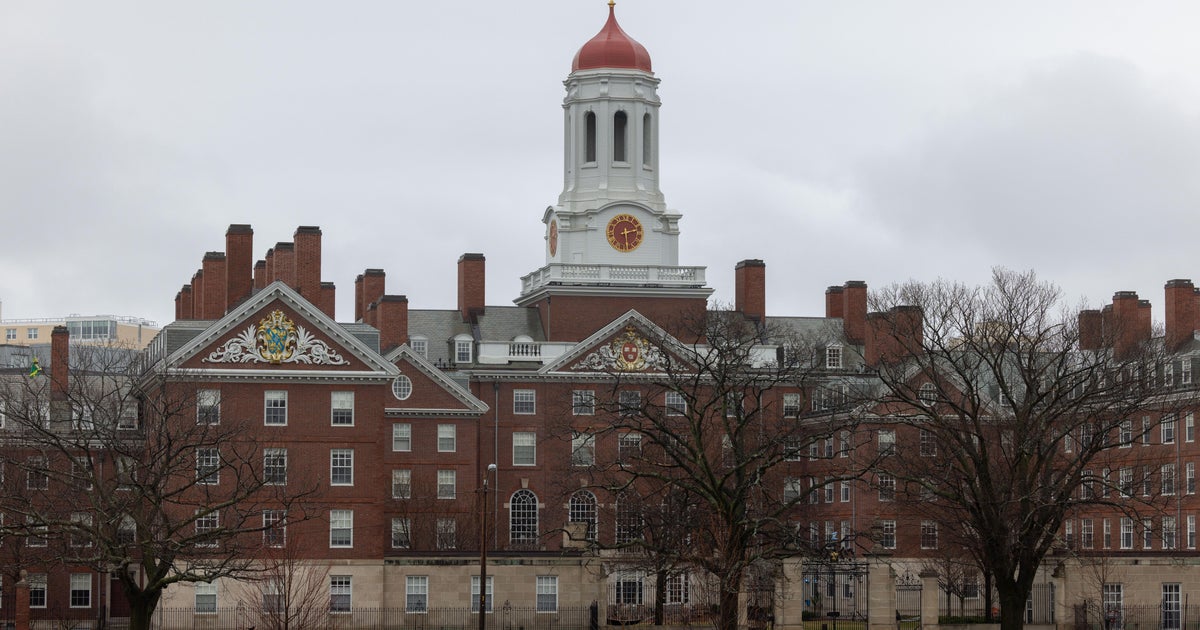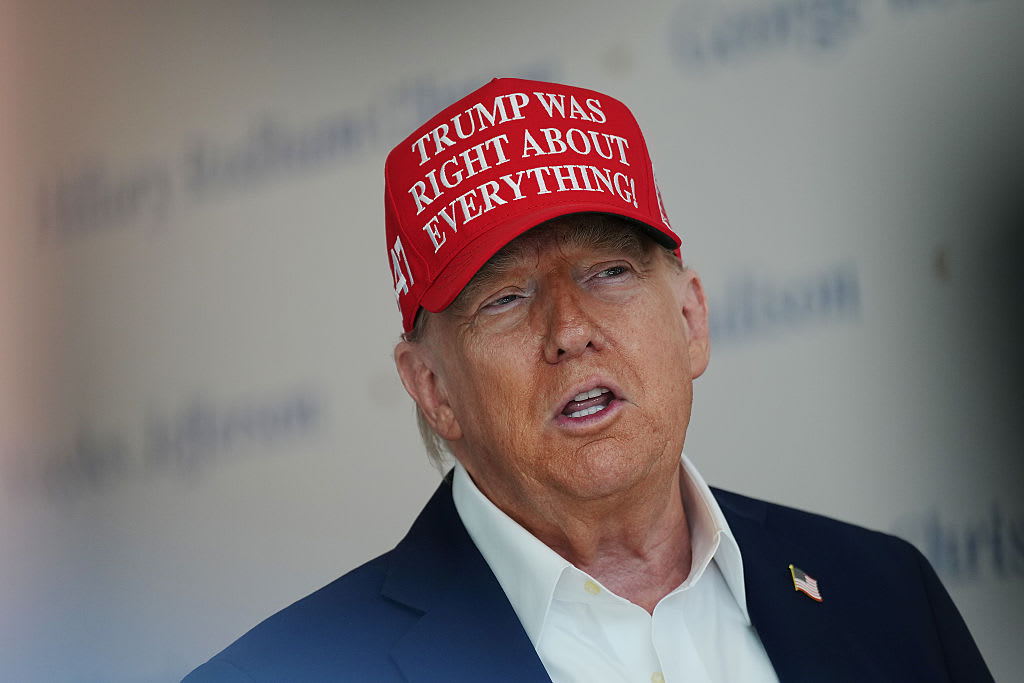Transcript: Loretta Mester on "Face the Nation," June 19, 2022
The following is a transcript of an interview with Loretta Mester, president and CEO of the Federal Reserve Bank of Cleveland, that aired Sunday, June 19, 2022, on "Face the Nation."
MARGARET BRENNAN: There are just 12 people who get to vote on whether to adjust interest rates and by how much: the members of the Federal Reserve's Open Market Committee. Loretta Mester is one of those people and she joins us from Philadelphia this morning. Good morning to you.
LORETTA MESTER: Good morning, MARGARET. Glad to be with you.
MARGARET BRENNAN: Glad to have you back. You know, this sustained high inflation continues to surprise Federal Reserve officials. Chair- Chairman Jerome Powell, excuse me, said as much this week, and that's why he said there was this unusually large interest rate increase of 75 basis points. He expects another similar one in another few weeks. What would alter that plan for you?
MESTER: Well, what we're looking at is trying to get our interest rates up to a more normal level so that we can stem some of the oversized demand momentum in the economy and bring it back down so that we can relieve some of those inflationary pressures. So we're going to be looking for the month-to-month changes in inflation rates to get some really good evidence on whether we've seen inflation first stabilize and then begin to move back down. It is going to take a while to get inflation back down to 2%. But what we're looking for is that we can see some moderation in demand, which has been incredibly strong. Bringing it back in alignment with supply side, which of course, as you know, has been constrained, alleviating some of that price pressures, getting inflation moving back down and on a sustainable path back to 2%, which is our inflation goal. So that's what we're going to be looking at, is what's going on in the monthly numbers. And frankly, the May CPI report basically was bad across the board, in terms of we didn't really see inflation stabilize. In fact, some of the measures actually looked worse in May than in April. And so that was part of the calculus of why moving up at a slightly higher than normal rate increase happened at our meeting last week.
MARGARET BRENNAN: Well, in- one person did dissent: Esther George of the Kansas City Fed. She said she thought the Fed was moving by too much and too fast. She argued significant and abrupt changes can be unsettling to households and small businesses. Why is she wrong and are you confident these dramatic hikes won't trigger a recession?
MESTER: Right. Well, I would never say Esther's wrong. It's an alternative view. We had signaled that we thought 50 would be appropriate, but then we got new data. And we've also said that we really need to be nimble in this period of uncertainty. And when we see data moving in the wrong direction, or continuing to move in the wrong direction, and information that inflation expectations, not in the short run, but even in the longer run are moving up, that was what was convincing to me that it was appropriate to move at a bigger clip than we had signaled early on.
MARGARET BRENNAN: And you would expect that next time–
MESTER: What we're going to be looking at is, is demand moderating and coming better in line with supply? And is inflation turning back down? That's going to be key here. We need to see compelling evidence that inflation is beginning to move back down towards our goal.
MARGARET BRENNAN: Mm hmm. Well, the Treasury Secretary, Janet Yellen, you know her from her time when she was running the Federal Reserve. She said this morning the economy will slow. How much are you expecting it to slow? Are you predicting a recession?
MESTER: So I'm not predicting a recession. If you look at the forecasts that were submitted and released earlier this week of all the participants in the FOMC meeting, you'll see that we do have growth slowing to a little bit below trend growth and we do have the unemployment rate moving up a little bit. And that's okay. Right? It's sort of, we want to see some slowing in demand to get it in better line with supply. But there's other things that are going to be happening later in the year, too. For example, we've already seen households really shifting some of their spending. Rather than spending on goods, which really was the bulk of spending coming out of the pandemic, height of the pandemic, when the economy reopened, into more services. That's going to help alleviate some of the upward pressure on goods prices so other parts of the economy will be moving as well as what we're doing on interest rates. We've already seen interest rates have an effect in the housing sector, where the housing sector is pulling back from the heights that it had seen. So we want to see some moderation in demand. Where we're going to be navigating, though, is setting our policy rates, our interest rates, so that we can maintain a healthy economy and healthy labor markets as we go through this period. But there's a lot of uncertainty out there. We're going to have to be very careful and nimble in how we approach this pulling back of this very accommodative monetary policy. That's something more appropriate to the economy.
MARGARET BRENNAN: Right. The Fed chair, though, was pretty clear that there are things that are beyond your control. Monetary policy can't solve this problem. He said gas prices are beyond your control. The war in Ukraine, COVID. So for people at home, does that mean they should assume their food and energy costs are going to stay high for the next year or two?
MESTER: So I agree with Chair Powell. Right. The way monetary policy works is on the demand side of the economy. We can slow some of that demand that's way above where the supply currently is. But we should expect to see some moderation and some improvement on the supply side as we go forward as well. Highly uncertain, I agree. Monetary policy can't control that. What we can do is really do what we can with our tools to get this inflation problem. And as you said, it's at a 40 year high. We've got to get monetary policy in a good place to combat that excessive demand and the excessive demand that really is driving price pressures. That's what we can do with our tools. And we're committed to doing that and keeping inflation– moving it down back to 2%. But the reason it'll take a while is because we need to have that supply side come back and a better balance as well. And that's why it isn't going to be immediate that we see 2% inflation and it will take a couple of years, but it will be moving down.
MARGARET BRENNAN: A couple of years. I mean, the other thing that's hard to measure is just people's confidence. Right? And when they look at being told by the administration, by the Fed, that inflation was transitory, they can say people were wrong. Right? The officials got it wrong. Gary Cohn, former president of Goldman Sachs, formerly Trump economic adviser, said the Fed was clearly behind the curve, clearly late in raising rates. And now the runway for a soft landing is now much shorter and narrower. You're not predicting recession, but you've got to acknowledge that there have been missteps and the risk is rising.
MESTER: Right. The recession risks are going up, partly because monetary policy could have given it a little earlier than it did. We're doing that now by moving interest rates up. But of course, there's a lot of other things going on as well. The Ukraine situation, which is a tragedy, has really, you know, led to that high oil prices that everyone's feeling the brunt of and high gasoline prices. So other things were moving on the supply side as well. No doubt supply conditions remain constrained longer than I think anyone thought. The businesses that we talked to in the Cleveland district all thought that there would be meaningful improvement. Even as, you know, as early as last year, we didn't get that. Now they don't see meaningful improvement until farther- much further out. So, again, other things are going on. Right. What I want to say, though, is we at the Fed are very committed to using the tools at our disposal to bring this inflation under control and getting it back to 2%. It is the number one challenge in the economy now.
MARGARET BRENNAN: It is.
MESTER: And I believe it's necessary to do that if we want to sustain healthy labor markets. I don't see this as a trade off at all.
MARGARET BRENNAN: Okay. Well, it's a- it's a huge economic challenge and a political one. We'll continue covering it here. Thank you. Loretta Mester. We'll be back in a moment.



